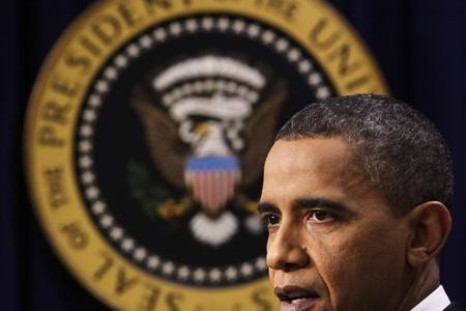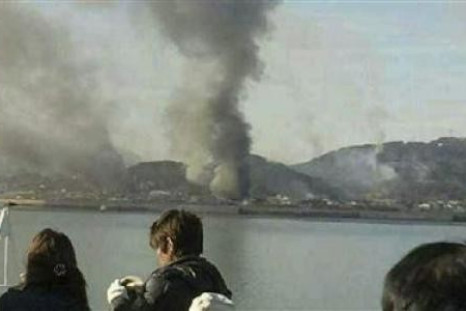Home
> Japan
Japan
Lloyds of London delivers "solid results" despite 2010 disasters
Insurance company Lloyds of London said today that in 2010 it made a profit of £2.2 billion, despite the impact of "significant claims" resulting from natural disasters.
What's next for Commodity Prices?
We were expecting the parabolic move in commodity prices to be interrupted by a correction at some point. While it could not have been anticipated as the catalyst for a pullback, the catastrophe in Japan two weeks ago prompted a sizeable sell-off in risk assets, including commodities. The question is whether in the aftermath of this event, or other lingering concerns, commodities can restart a substantive move to higher levels.
Lloyds Banking Group, RBS, Barclays and HSBC share price up on FTSE 100 as stability returns
Shares in British banks were up on the FTSE 100 in morning trading as investors continued to buy after last week's panic sell offs.
Strained to breaking point? Saudi Arabia's intervention in Bahrain could break the camel's back
Forget Britain's "Special Relationship" with America, largely a mirage of the Foreign Office and its existence unknown to most Americans. Even as World War II was ending, the cracks in the relationship between Britain and the United States were becoming ever more obvious to contemporaries and for more recent generations can be studied by reading books, both military and political, such as Armageddon and Nemesis by Max Hastings.
Lloyds Banking Group, RBS, Barclays and HSBC share price up on FTSE 100 as markets recover
Shares in British banks were up on the FTSE 100 in morning trading as investors started to regain their confidence after a spate of global events triggered panic selling.
Are US equities in a correction or is this the end of the bull?
The equity markets began to deteriorate weeks before the devastating natural disaster in Japan. Food inflation in the emerging markets and the ensuing unrest in the Middle East and North Africa causing an unwelcome spike in oil prices, and hawkish comments from the European Central Bank at a time when the continent's peripheral countries are struggling, collectively weighed on equity prices. Now news from Japan that is troublingly fluid regarding the earthquake's aftermath, which has soc...
Lloyds Banking Group and Barclays share price fall on FTSE 100 as G7 intervenes on Yen
Shares in British banks were mixed on the FTSE 100 in morning trading after the G7 said it would take action to help the Yen, following the disaster which struck Japan a week ago and is still crippling the nation.
Premier Farnell FY profits rise, impact of Japan supply chain problems "not yet fully understood"
Shares in Premier Farnell were up on the FTSE 250 in morning trading after the distribution group reported a strong rise in revenue and pre-tax profit in the full year ended 30 January.
Lloyds Banking Group, RBS and Barclays share price up on FTSE 100 following week of despair
Shares in British banks were broadly up on the FTSE 100 in morning trading following significant falls earlier in the week.
Lloyds Banking Group, RBS, Barclays and HSBC shaere price down on FTSE 100 as Japan brings world markets down
Shares in British banks were down on the FTSE 100 in morning trading as investors continued to show caution in the face of the still unfolding disaster in Japan.
Tokyo is rocked, but Pacific coast of Tohoku is devastated
I sat down and started to reach for the mug of coffee that my wife had made for me. My outstretched hand did not make it to the mug because my eyes were fixed on a scene of horror about to unfold on the television.
Lloyds Banking Group, RBS and Barclays share price up on FTSE 100 following upgrade from JP Morgan
Shares in British banks were broadly up on the FTSE 100 in morning trading following a positive note from JP Morgan.
Lloyds Banking Group, RBS, Barclays and HSBC share price down on FTSE 100 as world news drags
Shares in British banks were down on the FTSE 100 in morning trading as news from around the world helped dampen the spirits of investors.
Inflate the Way Out
The IMF estimates the U.S. gross outstanding public debt to GDP ratio at approximately 100% for 2011. Not good, but the U.S. can point to Japan and Italy as having higher ratios. But probably not many think that Japan's dismal economic picture is one that the U.S. should try to model itself on. Italy also has more than its share of economic issues and an economic framework that not many countries aspire to.
Compass Group share price up on FTSE 100 following "good start" to 2011
Shares in Compass Group were up on the FTSE 100 in afternoon trading after the catering company said it had had a "good start to the year".
Lloyds Banking Group, RBS, Barclays and HSBC share price down on FTSE 100 following Japan downgrade
Shares in British banks were down on the FTSE 100 in morning trading as economic concerns turned away from Europe for once and struck in the Far East.
Is default Portugal’s Manifest Destiny?
The daisy chain of events manifesting from the European fiscal crisis that initially consumed Greece then Ireland in its wake has skipped into Portugal. This is not being greeted by market participants as much of a surprise since this development had been foreshadowed for months. Portuguese bond yields had risen above 7%, roughly 4% higher than the benchmark 10-year German bund. This is the inglorious territory of Greek and Irish bond yields just as they were teetering on fiscal insolvency. ...
Misguided hysteria over rising U.S. debt
The federal fiscal policy debate is being overwhelmed by a growing sense that America must slash its deficit now, before it is too late. Actually, the United States is in no danger of a Treasury debt crisis and can carry far more debt than people believe without dire consequences.
As long as China's regime continues, so will North Korea's tantrums
North Korea's latest tantrum, which has cost the lives of two South Korean soldiers, is a worrying development in the region, which appears to be getting more unstable every year thanks to the unpredictable actions of the murderous regime in Pyongyang.
Scheduled summits, unscheduled tantrums
The British Prime Minister had a good visit to China but received no praise for his part at the G20 Summit in Seoul, South Korea, immediately after. On his return to the Commons on 15 November 2010, Harriet Harman, standing in for Ed Miliband, hurled the jibe at Mr Cameron: "Britain needed to send a statesman to this summit but all we sent was a spectator."
Lloyds Banking Group, RBS, Barclays and HSBC share price up on FTSE 100 following BoJ decision
Shares in British banks were up on the FTSE 100 in morning trading on hopes that governments around the world may move to stimulate their economies further.
Rio Tinto and BHP Billiton share price up on FTSE 100 as JV collapse denied
Shares in Rio Tinto and BHP Billiton were up on the FTSE 100 in morning trading after Rio Tinto denied reports that a planned joint venture between the two is on the brink of collapse.
Irish eyes are not smiling
"Is Standard & Poor's being overly pessimistic in its view on the Irish economy?" The Irish Times asked its readership to poll and the voting was a fairly close 53 percent "Yes" to 47 percent "No" by the afternoon of Friday 27 August 2010.
Blackberry 9800 specs - the 'Torch' is RIM's new touchscreen slider
RIM, who have recently been embroiled in a privacy battle with United Arab Emirates are in the midst of a smartphone launch which could see it earn back some users after market share was lost to Apple and Google Android's OS recently.
British American Tobacco share price flat on FTSE 100 after H1 results
Shares in British American Tobacco were broadly flat on the FTSE 100 in morning trading after the company reported a rise in profit of 14 per cent in the half year ended 30 June.
GlaxoSmithKline shares down and a recommended hold on FTSE 100 ahead of Q2 results
Shares in pharmaceutical giant GlaxoSmithKline were down in afternoon trading on the FTSE 100 and are a recommended hold ahead of tomorrow's Q2 results announcement.
Third round of strikes to be balloted as BA make new offer to unions
A third round of walkouts is to be balloted next Tuesday, 28t June as Unite, the Union receive a final offer from British Airways.
European Central Bank and EU at a crossroads?
In 1971, the Bretton Woods Gold-Dollar exchange rate system broke down, bringing in an era of floating exchange rates with all their uncertainty. Governments, especially the USA's and UK's may have been relieved of defending a particular parity by having to take deflationary action but this simply passed the burden on to trade and industry. As rates of exchange might vary at any time, both exporters and importers feared exchange rate losses, so increasing risk and uncertainty in the busi...
10 key facts about the World Cup business - figures
$305 million - the amount top sponsors such as Hyundai, Sony and Coca-Cola are reportedly paying to be 'FIFA Partners' - including worldwide rights to two World Cups over seven years ($40 million per year).















